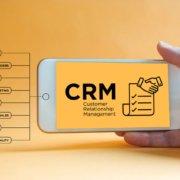Senior Living Websites: Why Do a Website Audit?
My dad would always tell me, “If it ain’t broke, don’t fix it.” And when it came to my 1979 beat up Dodge Aspen, his advice made perfect sense. But when it comes to your senior living website, you must anticipate the broken bits (ideally, before they happen or just as they’re happening) so you can nip them in the proverbial bud.
How?
By conducting regular website audits.
Why do a website audit? Here are three reasons why you need to make this a part of your ongoing web marketing strategy:
1. Improved website performance will lead to better user experience (and happier users make for happier leads/customers).
Even your website needs a yearly physical to see how the systems are running. A website audit will help you determine your website’s technical performance. Think framework and infrastructure, page speed/load time, and navigation—all of which affects the user experience (UX). When auditing your site, pay close attention to the following:
- Is your website mobile-friendly? According to @similiarweb, mobile drives 56% of all traffic.
- Is your website error free? Dead ends and broken links can be frustrating to the user.
- Is your page size below 9.5 mb? The heavier the site page, the slower the load time.
- Do your web pages load within three seconds? Any slower and visitors will abandon your site, reducing conversions and sales.
2. Enhancing your search engine optimization (SEO) means your site stands a better chance of coming up in organic searches.
By conducting an SEO site checkup, you’ll be able to identify any missed SEO opportunities and remedy any mistakes.
- Does your website have XML sitemap files? This tells Google and other search engines what pages on your site you want crawled and indexed.
- Do you have a title tag and how long is it? The title tag is an HTML title that is used to briefly and accurately describe the topic and theme of an online listing. Your title tag should be no longer than 65 characters in length.
- Are your page titles optimized? Remember, 60% of all organic clicks go to the top three organic search results. Optimize your page titles and use a compelling meta description to get off on the right foot.
- Are you reviewing your keywords? Look at your keyword performance. Find out which keywords are giving you the biggest gains in traffic and leads and make sure you are adding relevant content to your website that targets those keywords.
3. Reviewing and tweaking conversion paths will help you boost overall visitor-to-leads and leads-to-customers.
A website audit enables you to re-evaluate your lead generation and conversion funnels.
- Are you providing high quality content on your website that provides value to your prospects? Companies that blog get 55% more web traffic and 70% more leads than those that don’t. Blogging is the best way to reach your target audience with useful, educational information they’re out there looking for. Not to mention how much it helps your search rankings.
- Do you have a variety of content that appeals to all your different prospects (e.g., potential resident, adult child), including where they are in their journey (e.g., research, planning)? Understanding your buyers by developing (and regularly revisiting!) personas will help you create targeted content that speaks to them and gets them to act.
- Do you have a system of following up with your leads and keeping them engaged in your content and brand? Calls-to-action, marketing offers, and landing pages play a major role in the performance of your website.
Let’s Audit Your Website!
Ready to find out how your senior living website is doing? Get started here.













Trackbacks & Pingbacks
[…] beginning of any year is a great time to audit your senior living community’s website. Why should you audit your site? First, it’s easy to get too close to something and gloss […]
Leave a Reply
Want to join the discussion?Feel free to contribute!